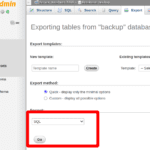The Benefits of Hard-Coding Everything: Because Flexibility is Overrated in the World of Programming
Today, you will learn The Benefits of Hard-Coding Everything: Because Flexibility is Overrated in the World of Programming. As programmers, we are constantly told that flexibility is key to writing efficient and scalable code. We are encouraged to create code that can adapt to changing circumstances, and to avoid hard coding whenever possible. However, is this really the best approach to programming?
In this article, we will explore the benefits of hard-coding everything and why it may be a better approach than trying to be flexible all the time. We will discuss the advantages of hard coding, and the drawbacks of flexibility, and provide some tips for when hard coding may be the better choice.
Table of concept
The Benefits of Hard-Coding Everything: Because Flexibility is Overrated in the World of Programming.
1 The Advantages of Hard-Coding
1.1 Improved Performance
Hard coding can significantly improve the performance of your code. By eliminating the need for calculations or complex processing, your code can run much faster and more efficiently. This is particularly important in projects where speed and efficiency are critical.
1.2 Reduced Complexity
Hard-coding can also reduce the complexity of your code. By removing the need for complex decision-making or branching, your code can become much simpler and easier to understand. This can be especially important when working on larger projects, where complexity can quickly become overwhelming.
1.3 Increased Security
Hard-coding can also improve the security of your code. By eliminating the need for user input, your code can become less vulnerable to attacks such as SQL injection or cross-site scripting.
2 The Drawbacks of Flexibility
2.1 Increased Complexity
Flexibility can often lead to increased complexity in your code. By trying to accommodate for every possible scenario, your code can become bloated and difficult to understand. This can make it harder to debug and maintain in the long run.
2.2 Reduced Performance
Flexibility can also reduce the performance of your code. By introducing extra calculations or processing, your code can become slower and less efficient. This can be particularly problematic in time-sensitive projects or applications where speed is critical.
2.3 Security Risks
Flexibility can also introduce security risks to your code. By allowing user input, your code becomes more vulnerable to attacks such as SQL injection or cross-site scripting.
3. When to Use Hard-Coding
3.1 Small Projects
Hard-coding is often the best approach for small projects. When you have a limited scope and a clear understanding of what your code needs to do, hard-coding can be a quick and effective way to get the job done.
3.2 Limited Resources
Hard-coding can also be the best choice when resources are limited. When you don’t have access to the tools or frameworks necessary for flexibility, hard-coding can be a reliable way to get the job done without sacrificing performance or security.
3.3 Time-sensitive Projects
In projects where speed and efficiency are critical, hard-coding can be the better choice. By eliminating the need for calculations or processing, hard-coding can significantly improve the performance of your code, making it the ideal choice for time-sensitive projects.
Frequently Asked Questions
Hard-coding refers to the practice of embedding specific values or data directly into your code rather than relying on external inputs or variables. This can result in faster, more efficient, and more secure code.
Flexibility is important in programming because it allows your code to adapt to changing circumstances. This can be particularly important in projects where requirements or specifications may change over time.
The benefits of hard-coding include improved performance, reduced complexity, and increased security. By eliminating the need for calculations or complex decision-making, hard-coded code can run faster, be simpler to understand, and be less vulnerable to attacks.
The drawbacks of flexibility include increased complexity, reduced performance, and security risks. By trying to accommodate for every possible scenario, flexible code can become bloated and difficult to understand, while introducing extra processing that can make it slower and less secure.
Hard-coding is the best approach in small projects, projects with limited resources, and time-sensitive projects. By eliminating the need for external inputs and variables, hard-coded code can be faster, more efficient, and more secure.
Conclusion
While flexibility is often touted as a crucial aspect of programming, it is not always the best approach. Hard coding can provide significant advantages in terms of performance, complexity, and security, particularly in small projects or those with limited resources. By carefully considering when to use hard coding, programmers can create efficient, effective, and secure code that meets their needs. So the Benefits of Hard-Coding Everything: Flexibility is Overrated in the World of Programming, and sometimes a more rigid approach can be the best choice.












